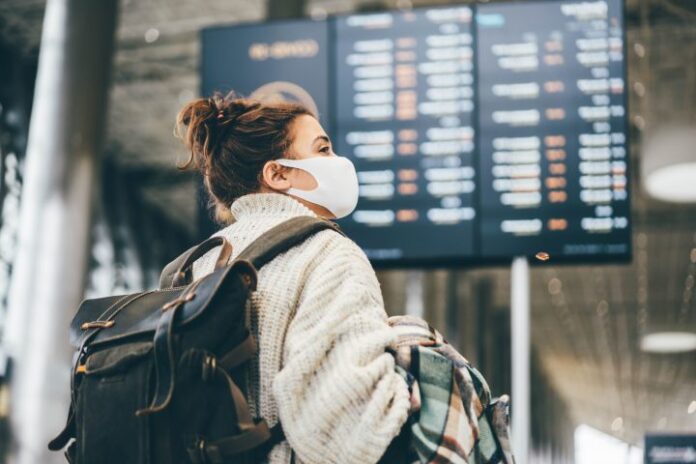With monkeypox now declared a global health emergency by the World Health Organization (WHO), international travel is under greater scrutiny as the virus, typically limited to certain parts of Africa, is rapidly spreading across the globe.
But infectious disease experts aren’t convinced travel curbs are needed to help contain the spread, even as cases rise.
Globally, more than 16,000 cases have been reported in 75 countries, according to the WHO, as of July 22. Canada has confirmed 681 monkeypox cases, as of July 23, but those numbers are expected to rise, the Public Health Agency of Canada said.
Read more:
Monkeypox now a global health threat. But risk not necessarily higher in Canada, experts say
The growing threat of monkeypox has raised alarm in countries not accustomed to seeing such a surge as much still remains unknown about the rare zoonotic infectious disease.
“It still is a relatively new disease, entering basically a new population and not being controlled and we run the risk that, like COVID, it can become entrenched,” said Michael Libman, an infectious diseases specialist and director of the J.D. MacLean Centre for Tropical Medicine at McGill.
Gerald Evans, an infectious disease specialist at Queen’s University in Kingston, Ont., says monkeypox doesn’t have the same ability to spread as COVID-19.
“I do not think there will be a pandemic declaration for monkeypox, just principally because it doesn’t have the same capacity for mass transmission like we saw with COVID-19,” he said.
Hundreds of cases of monkeypox reported in Canada
Under the International Health Regulations (IHR), when a “public health emergency of international concern” is declared, international efforts are required to stop the spread of the virus. This could include sharing vaccines and treatments among countries and taking travel-related measures.
In light of the evolving outbreak, the WHO has recommended anyone with symptoms, such as body rash, fever, headache, muscle pain and fatigue, avoid travel. That said, it does not recommend “general or targeted international travel-related measures” to stop the spread.
Last month, PHAC issued a travel notice, advising travellers to practise enhanced health precautions.
The United States, Australia, France, India and South Africa are among the dozens of countries listed in Canada’s Level 2 advisory.
“As the monkeypox outbreak evolves, the government of Canada will continue to work with the WHO, international partners and with Canadian provinces and territories to determine the best courses of action to limit the spread of monkeypox in Canada,” PHAC said in an emailed response to Global News when asked about whether there would be changes to its travel advisory in light of the WHO emergency declaration.
Trending Stories
Watch Pope Francis’ open-air mass in Edmonton
Shopify to lay off 10% of workforce after pandemic growth bet ‘didn’t pay off’: CEO
Even as cases rise, experts don’t see the need to clamp down on international travel the way countries did when COVID-19 was characterized as a global pandemic more than two years ago.
“I don’t think that the disease itself is causing enough disruption and destruction that it would make sense to do something as drastic as closing down big chunks of the world economy,” Libman said.
“Travel is an important piece of the puzzle, but restricting travel at this point is very unlikely to fix the problem,” he added.
Monkeypox is primarily transmitted through prolonged close contact and the majority of cases reported in the current outbreak involve men who had intimate sexual contact with other men.
This makes monkeypox relatively less contagious compared to COVID-19, which can also spread through the air, said Libman.
Monkeypox illness is usually mild, with most people recovering on their own after a few weeks. Since January 2022, only five deaths have been reported across the globe.
Since the virus has already spread worldwide, experts are also questioning the value of reimposing travel measures that have now eased after pandemic-related shutdowns.
“Restricting travel at this point is not going to have any impact,” Evans said. “I don’t think there should be an elevation of any concern about travel to particular areas.”
Monkeypox: With cases jumping 59% in Canada, what are the signs you need to know? – Jul 15, 2022
While Canada has eased its travel restrictions related to COVID-19 this year, some still remain at points of entry, including random testing upon arrival.
Screening for monkeypox among travellers will be much more complicated as it involves looking for and sampling lesions, experts say.
“This is not like a COVID test where you just swab someone’s throat or their nose,” Evans said.
“I think the best thing that we do now is just inform people if they’ve travelled abroad, particularly if they’re in a group with some behaviours which put them at risk, that they be just diligent to look for the possibility they may have the lesion,” he added.
Depending on how the virus continues to evolve, it could lead to some travel uncertainty going forward as infection rates, cultures and even politics may influence how countries choose to respond, said Kerry Bowman, a professor of bioethics and global health at the University of Toronto.
“What happens is you’ve got a global declaration, but it’s up to the many, many nations of this world to make decisions about what they individually are going to do about this,” he said.
To get the monkeypox situation under control, Libman stressed the need for vaccination, education and behavioural change.
“Hopefully, we’ll be able to turn this thing around in a way that we’ve failed to do with COVID,” he said.
© 2022 Global News, a division of Corus Entertainment Inc.



